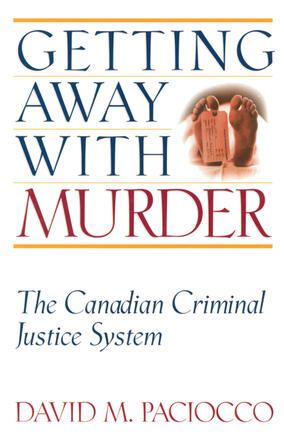
Getting Away With Murder
The Canadian Criminal Justice System
Description
Since Cain killed Abel, the crime of murder has fascinated humans. So, too, do murder trials. They enable us to be voyeurs, peering from a safe distance into the dark recesses of the human capacity for evil and deadly impulse, and allowing us to bear witness to the ceremonial punishment of wrongdoers.
If the process of fatal crime and punishment fascinates, the Canadian criminal justice system infuriates, with its technicalities, its habit of coddling offenders, its abuse of victims, its inane defences, and its parole system.
Using the docudrama of a crime of murder as a lead to each chapter, Getting Away with Murder: the Canadian Criminal Justice System unravels the mysteries of the criminal justice system, explaining how and why we sentence offenders and pointing out where we err, particularly with the parole system. It describes the reasons behind the system’s technicalities and why some of the guilty receive their benefit. The book explores the inadequacies and excesses of criminal defences, and illustrates why the system is miserly when it comes to victims’ rights. Suggesting that much of the loss of confidence in our criminal justice system is based on misunderstanding and inadequate information, the book provides information to fill in the gaps without becoming an apologia for the system. Although entertaining—written with a sense of humour and a bit of irreverence—the book is a serious, hard hitting, and candid work by a law professor who has acted both as prosecutor and defence counsel.
Awards
- Runner-up, The Donner Prize 2000
- Short-listed, Walter Owen Book Prize 2000
Reviews
". ..consistently challenging and absorbing. .. . For anyone who prefers to understand and think before deciding whether to join in the outrage, Getting Away with Murder is mandatory reading. "
- The Ottawa Citizen
"Paciocco provokes readers into challenging their own opinions on important criminal justice matters. Many of his conclusions are as blunt and unsettling as they are articulate. "
- The Vancouver Sun
"Getting Away with Murder makes an important and timely contribution to discussion of reforming our justice system. Anyone interested in crime and justice should read it. Along the way, they will learn a great deal about the law and the administration of justice. "
- The Globe and Mail